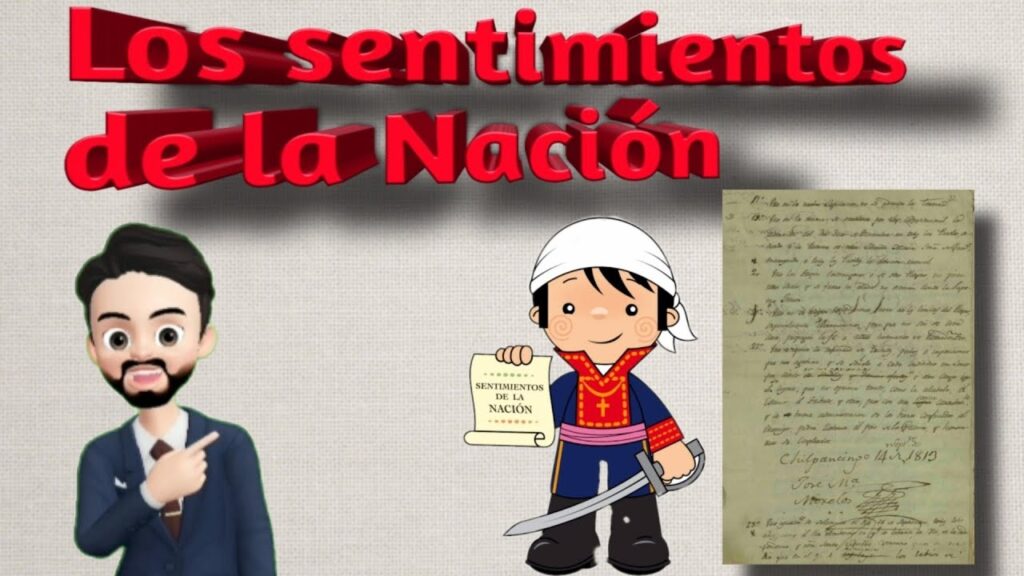Exploring the Legacy of José María Morelos: The Sentimientos de la Nación
José María Morelos, one of Mexico’s most revered heroes, has left an indelible mark on the nation’s history, particularly through his political text, the Sentimientos de la Nación. This remarkable document, presented in 1813 during the war of independence against Spain, outlined the fundamental principles that would shape the future of Mexico. It’s an essential reference for anyone seeking to understand the country’s roots in liberty and social justice.
The Sentimientos de la Nación is more than a historical document; it is a blueprint for a nation striving for sovereignty. Morelos proposed radical reforms, such as the abolishment of slavery and egalitarian distribution of wealth, which were incredibly progressive for his time. His vision was one of a unified Mexico, free from the shackles of colonial oppression, and his legacy continues to inspire citizens and visitors alike.
Visitors to Mexico can engage with Morelos’s legacy by exploring key landmarks associated with his life. Places like the city of Morelia, named after the hero himself, and the House of Morelos in Mexico City, which now operates as a museum. These sites provide a tangible connection to the ideals laid out in the Sentimientos de la Nación and the struggle for Mexican independence.
The impact of Morelos’s ideas echoed throughout Mexican history, resurfacing as central tenets in later constitutions and political discourse. The Sentimientos de la Nación advocated for universal suffrage, the separation of powers, and the assertion of national sovereignty – concepts that were enshrined into the Mexican consciousness and continue to underpin the nation’s governance.
Through cultural events and educational programs, Mexico celebrates the legacy of José María Morelos and the Sentimientos de la Nación. These events often culminate around his birth and death anniversaries, inviting both locals and tourists to reflect on the struggle for independence and the ongoing journey of the Mexican nation. The sentiments expressed by Morelos remain a cause for reflection and discussion, symbolizing the enduring spirit of the Mexican people.
José María Morelos: His Key Role in the Congress of Chilpancingo
José María Morelos y Pavón stands as a pivotal figure in the history of Mexico’s struggle for independence from Spanish rule. His most notable contribution was during the Congress of Chilpancingo, also known as the Congress of Anáhuac, convened in September 1813. Morelos played an integral part, not just as a military leader, but as a visionary statesman in the assembly that was to define the ideological framework of an independent Mexico. What transpired at the Congress was largely shaped by his Sentimientos de la Nación, a document that outlined the core values and goals of the independence movement.
The Congress of Chilpancingo marked the transition of the Mexican independence movement from a disorganized rebellion to a structured insurgent government with Morelos at its helm. His role in proceedings was multifaceted; he was a charismatic leader summoning support and a strategic thinker elaborating a constitution. This constitution aimed at establishing a new social and legal order in place of the vice-regal system imposed by the Spanish Crown. Morelos envisioned a sovereign nation shaped on the principles of equality and justice, values deeply ingrained in the discussions and decrees of the Congress.
Under Morelos’s guidance, the Congress became a fulcrum for revolutionary ideology, and through it, he proposed major reforms, including the abolition of slavery and class distinctions. These reforms were indeed radical for the period, anticipating the liberal policies that would later emerge in independent Mexico. The hacienda system and the existing caste system were under scrutiny, debated with an intense desire to eradicate the social inequalities that bedeviled colonial Mexico. The principles passed in this congress were so forward-thinking that they would influence not only the following Mexican constitutions but politics and social frameworks of other emerging Latin American nations.
Unfortunately, the military efforts to secure the foundations laid out by the Congress of Chilpancingo were met with stiff resistance from royalist forces. Despite the setbacks, the work of Morelos paved the way for what would eventually be the consummation of the Mexican War of Independence. His vigorous insistence on sovereignty, self-governance, and civil rights enshrined in the Arts of the Congress remained influential throughout the protracted struggle and beyond, evidencing his role not just as a leader of men in battle, but also as a beacon of republican ideals and national transformation.
Uncovering the Historical Significance of The Sentimientos de la Nación in Mexico
The Sentimientos de la Nación holds a vital place in Mexico’s rich tapestry of historical documents. It not simply a set of declarations, but a foundational text that contributed to the shaping of the country as it moved towards independence. Authored by José María Morelos y Pavón, a key figure in the Mexican War of Independence, this document was presented in Chilpancingo, now the state of Guerrero, on September 14, 1813. It encapsulates the ambitions and spirit of the Mexican people to break free from Spanish rule.
Illustrating the desire for sovereignty and social justice, the Sentimientos de la Nación was a precursor to the country’s first constitution. Its 23 points lay out a visionary roadmap for a nation-state. They advocate for the abolition of slavery, the division of powers, the limitation of the church’s power in civil matters, and the equality of all citizens before the law. These ideals were radical for the era and they resonate even today as key principles of modern democracies.
Morelos’s influence through the Sentimientos de la Nación goes beyond the document’s immediate effects on Mexican laws and governance. It is a foundation for the national identity, manifesting the hope and determination of Mexicans to establish a republic characterized by liberty and justice. It is a symbol of the values that sparked the revolution and laid the groundwork for the country’s later constitutional advancements.
To truly grasp the essence of modern Mexico, one must consider the historical context and the enduring impact of the Sentimientos de la Nación. It is not just a document to be archived and studied by historians but a living piece of heritage. As we delve into the towns, the customs, and the cultural festivals of Mexico, the spirit of the Sentimientos is ever-present, reminding us of the enduring struggle for freedom and the profound nationalism that continues to thrive in the heart of the Mexican people.
The Congress of Chilpancingo: A Milestone in Mexico’s Fight for Independence
Amidst the fervor of revolution, the Congress of Chilpancingo stands out as a pivotal event in the Mexican struggle for independence from Spanish rule. Convened by revolutionary leader José María Morelos y Pavón in September 1813, the congress was instrumental in formalizing the ideals and goals of the independence movement. It was here that the insurgents drafted the blueprint for their nascent nation, declaring their intention to break free from the yoke of colonialism and to reject any form of governance that did not stem from their own will as a sovereign people.
The congress, held in the town of Chilpancingo, now part of the state of Guerrero, marked a significant shift from armed rebellion to the establishment of a structured government framework. Morelos presented the gathering with a document entitled “Sentiments of the Nation,” which outlined a series of groundbreaking proposals, including the abolition of slavery, equal rights for indigenous people, and the distribution of land to the poor. The declarations made at the Congress of Chilpancingo would eventually pave the way for the Mexican Constitution of 1824, which boldly set the foundation for Mexico as a sovereign and independent republic.
Despite facing considerable challenges, including military setbacks and political dissent, the Congress of Chilpancingo remains a testament to the resilience and determination of the Mexican people. It was a forum where visionaries could articulate their aspirations for a country free from oppression, influence, and inequality. The discussions and decrees of the congress were essential in galvanizing public support and in shaping the course of Mexican history. It was not merely a gathering of revolutionaries, but a beacon that illuminated the path towards independence and democratic governance in Mexico.
How José María Morelos Shaped the Vision of a Nation at the Congress of Chilpancingo
As a pivotal figure in the Mexican War of Independence, José María Morelos was instrumental in defining the political and social aspirations of the newly forming nation. The Congress of Chilpancingo, convened in 1813, was a landmark assembly where Morelos presented his ideological framework for an independent Mexico. This document, known as “Sentimientos de la Nación,” outlined a progressive vision, emphasizing sovereignty, equality, and the distribution of land.
Morelos’s vision for Mexico was transformative, proposing the abolishment of class distinctions and the recognition of universal suffrage. He valiantly argued for a nation free from the yoke of Spanish colonial rule, where every citizen had a voice. His advocacy for social justice and economic equality resonated deeply with the people, setting the stage for the future of the country. His proposals for the abolition of slavery and fair taxes were particularly revolutionary, echoing the desires of a population yearning for change.
The Congress of Chilpancingo marks a seminal moment in Mexican history, largely due to the tireless work and vision of José María Morelos. His contributions at the Congress underscored a commitment to liberty and justice, values that would eventually shape the constitution of the republic. His legacy is not only etched in the annals of history but in the hearts of the Mexican people, serving as a beacon of hope and resilience in the country’s path to self-determination.



